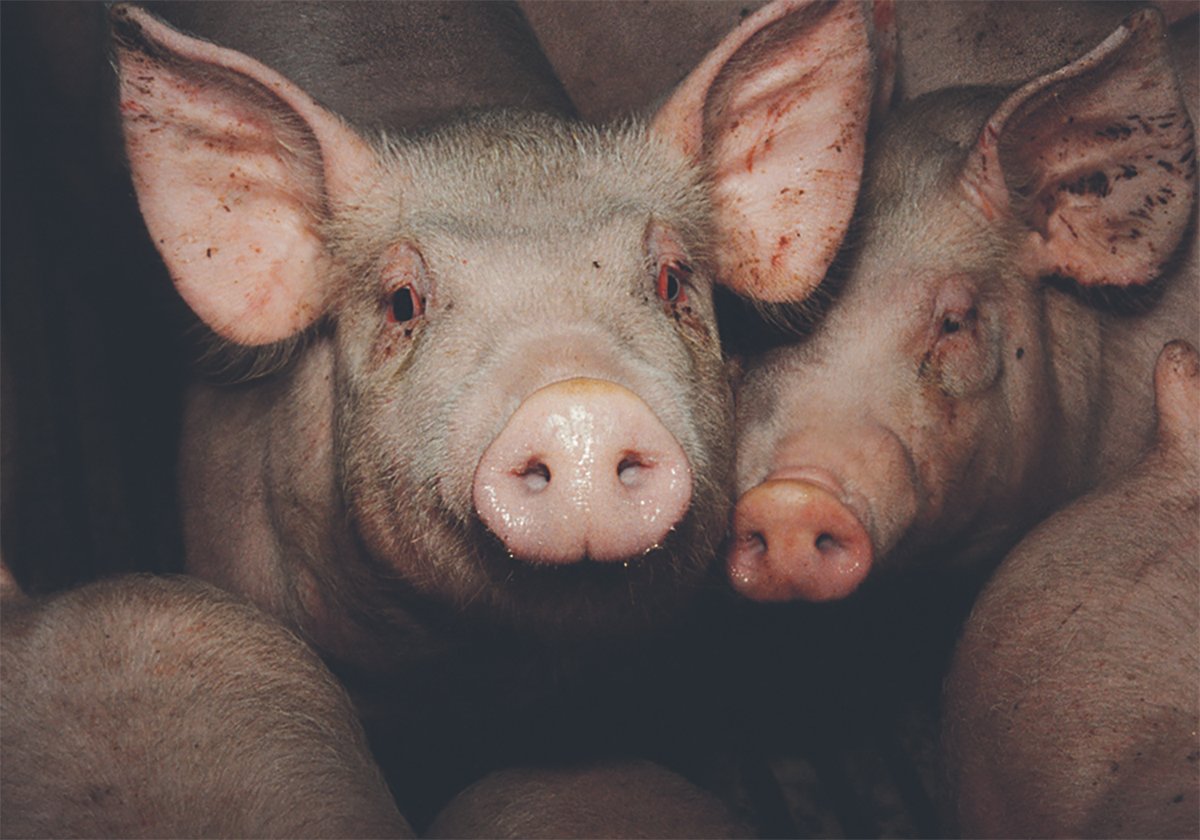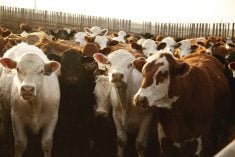Glacier FarmMedia – The Canadian Cattle Association has released a new salvo in a long-running trade dispute with the United Kingdom.
In an Oct. 23 news release, the association called for the federal government to begin the termination of the Canada-U.K. Continuity Agreement — a temporary trade agreement set up in the wake of Brexit — due to that country’ss alleged failure to abide by its terms.
WHY IT MATTERS: Mismatches between Canadian and European regulations have seen the same market access issues rise repeatedly across recent trade deals, from CETA to Canada’s bilateral deal with the U.K., to the U.K.’s pitch to join the CPTPP.
Read Also

The Western Producer Livestock Report – October 30, 2025
Western Producer Livestock Report for October 30, 2025. See U.S. & Canadian hog prices, Canadian bison & lamb market data and sales insights.
In this case, that means the U.K.’s ongoing refusal to import Canadian beef on the grounds of industry use of growth hormone and an anti-microbial used on meat carcasses. The CCA calls this action a non-tariff trade barrier.
The continuity agreement was intended to preserve the main benefits of the Canada-European Union Comprehensive Economic and Trade Agreement (CETA) after the U.K. left the EU, including Canada’s preferential access to the U.K. market.
The call follows Canada’s tabling of Bill C-13, essentially Canada’s approval of the U.K. Accession to the Comprehensive and Progressive Agreement for Trans-Pacific Partnership (CPTPP). The bill is currently at its second reading in the House of Commons.
One goal of the CCA request is to start bilateral trade negotiations with the U.K. afresh.
“We knew (the U.K.) has already met the conditions with several other countries confirming that accession,” said CCA president Tyler Fulton.
“So we’re really using that tabling of the legislation as the catalyst to return to … bilateral negotiations to address our concerns.”
Although the continuity agreement was conceived as a “bridge” agreement between Canada and the U.K., Britain has retained regulations that echoed those of Europe, which have already proven to be a sticking point with Canadian meat industries.
CETA had initially promised big gains for sectors such as pork and beef. Years later, however, that market access hasn’t materialized, held back by issues such as carcass washes common in Canada but not approved in Europe.
Launched in 2021, the continuity agreement was always intended to be temporary (three years) and presumed to be long enough for the countries to work out their trade differences.
The Canadian government has since sought to revise the bilateral agreement with the U.K., but talks stalled.
The U.K.’s bid to join the CPTPP further raised the temperature of the issue.
Canada’s red meat sector urged the federal government to resist the U.K.’s membership, arguing that, with access issues revealed under CETA yet to be addressed, the U.K.’s CPTPP membership would repeat history.
The CCA, the Canadian Meat Council, the National Cattle Feeders’ Association and, later, the Canadian Pork Council (CPC), formed the “Say no to a bad deal” initiative to lobby on the issue.
Igniting the dispute further was the U.K.’s legal ability to export its beef to Canada, which it did to the tune of $42 million worth in 2024 — a 156 per cent year-over-year increase from $16.6 million in 2023 — while Canada was unable to export any to its shores.
Fulton thinks the proposed dissolution of the continuity agreement could prompt the U.K. back to the negotiation table.
”Without those non-tariff barriers being addressed, we don’t have meaningful access, and so if we terminate the continuity agreement — the temporary, interim agreement — then that should provide the rationale or the motivation to bring the U.K. back to the table so that we can have our issues addressed.”
Regulation dissonance
Part of the trouble on the U.K. side is over peroxyacetic acid, an anti-microbial that Canada uses on meat carcasses to prevent E. coli. The U.K. doesn’t use this on meat, and regulations over the practice have limited how much Canadian meat can land on U.K. shores.
However, it’s considered an important component of Canada’s meat hygiene systems, which the CCA says are recognized as leading-edge procedures throughout the world.
“We’re looking for full systems approval,” said Fulton.
“And in the same way that it’s world-leading and safe and healthy for Canadians and North Americans and people around the world, we want (the U.K.) to acknowledge those systems that are in place.”
Another big wedge in negotiations has been the U.K.’s ongoing application of the EU’s hormone-use ban on Canadian meat, despite a World Trade Organization ruling against it in 1997.
“There’s no science to support their position. It is really a definition of a non-tariff barrier that they are referencing,” added Fulton.
The continuity agreement’s Sanitary and Phytosanitary Measures (SPS) enables the rights of both parties to take the necessary measures to protect against risks to food safety, animal or plant life or health, the CCA said.
However, it also requires the measures be “science-based, transparent and applied only to the extent necessary to protect human, animal or plant life” so as not to create “unnecessary and unjustifiable” SPS-related trade restrictions.”
The Canadian pork industry is in a similar trade holding pattern, not only with the U.K., but also the EU, said Manitoba Pork general manager Cam Dahl. However, in pork’s case, the triggering action has been the EU’s extensive testing requirements for trichinosis.
According to the Mayo Clinic, trichinosis — also called trichinella worms — is a type of infection caused by a roundworm parasite in pigs and other animals. Dahl believes the requirements are dated.
“There hasn’t been a case of trichinella in commercial pork in Canada (for) about 50 years,” he said.
“This is preventing fresh pork from moving from Canada into the EU because of the cost and the time required for testing, and it’s effectively blocking our exports. It’s blocking our exports to all of the EU, but the the U.K. has upheld those conditions.”
Dahl said the CCA is right to draw attention to the U.K.’s meat trade policies, adding they’re compromising efforts to diversify trade.
“When we talk about trade diversification, it’s not just signing new agreements in Asia. It’s making sure the agreements that we have work, and CETA and our trade arrangements with the U.K. are not working for Canadian agriculture.
“So that’s something that needs to be at the top of the agenda for Canadian negotiators.”
Dahl hopes these issues are at the top of the discussion list at the meeting of the EU-Canada Agriculture Committee in Ottawa.
“And I hope that they’re at the top of the list for prime minister (Mark) Carney when he goes to Europe.”
















